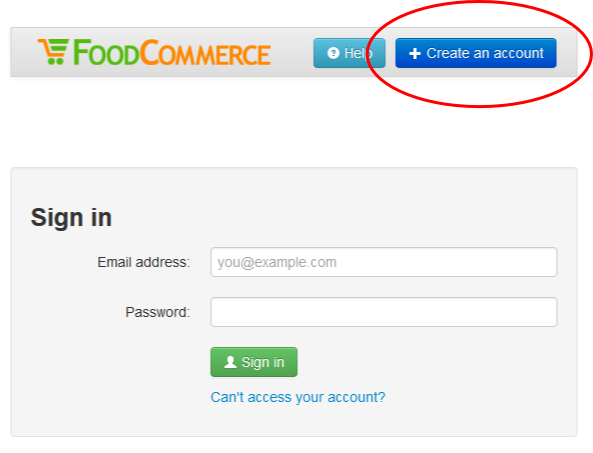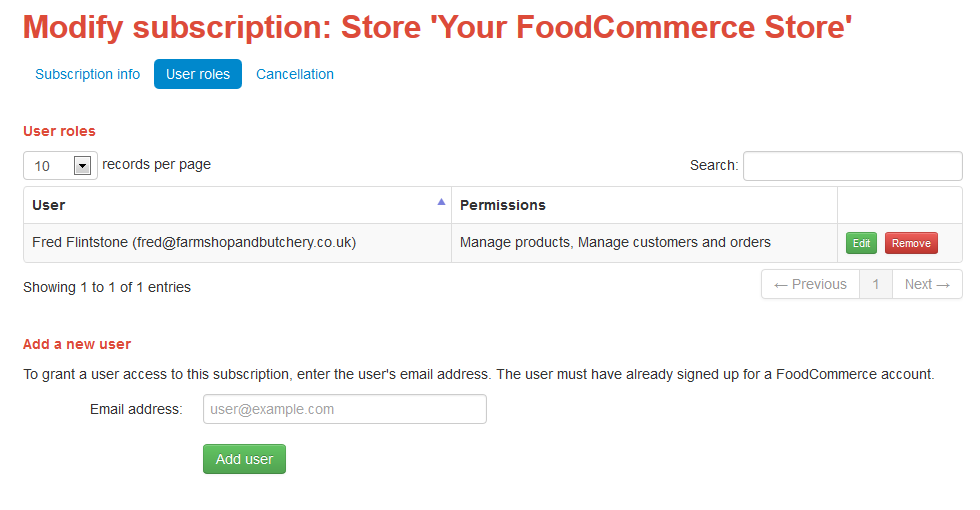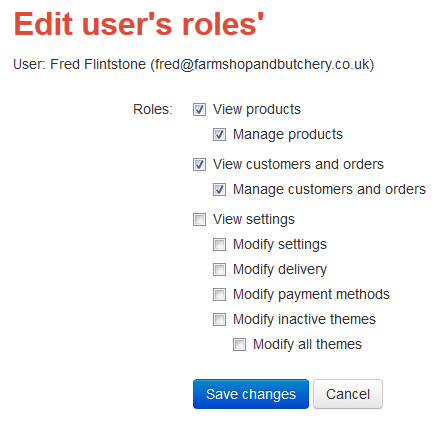Creating separate user accounts
30 December 2016
Intended audience: store owner
If you need to give another person access to the control panel of your online shop you should do so with a separate user account rather than handing over your own login credentials.
Not taking care of your login credentials makes your website and the data contained within it vulnerable. You could also be breaking the law as under the data protection act security of your customers’ data is a legal obligation.
To give another person access to your online shop they first need to create their own user account from the sign-in screen.

Once they have a user account you can then allocate roles to them in your online shop. You do this by clicking on the “subscriptions” button in the top right of the screen and then on “modify subscription” button. Click on the “user roles” tab and follow the on screen instructions.


Note that user accounts belong to individuals and are not tied into any individual shop. An individual shop will have an owner and usually this is the person who created the online shop. The owner is the only user that can grant other users roles within their online shop.
User example – web developer
You employ a graphical design company to redesign your store front. To implement the new design in FoodCommerce you need to give them access to the control panel. You create a new theme for them by copying the current one and give them the role “manage inactive themes”.
In doing this you have prevented a third party from seeing your customer data. You have also stopped them making changes to your current store design, which is still fully operational, or live products and important settings. When they have finished you can easily remove them from your user roles thereby taking their access away.
User example – photographer
You employ a company to take photographs of your products and upload them to your website. You give them the role “manage products”.
Again they only have access to what they need and other important business and customer data is protected. When they are finished their access can be revoked.
User example – shop operative
You employ a person to add products to your online shop and process orders. You give them the roles “manage products” and “manage customers and orders”.
Prevents changing of important settings that you want to keep under your control.

Tony Fear